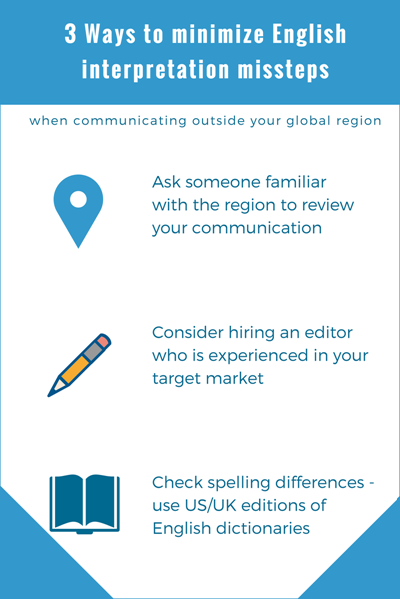 Do your customers have certain business communication triggers that flip their switch?
Do your customers have certain business communication triggers that flip their switch?
- Words that inflame?
- Attitudes they hate?
- Distractions that unhinge?
You hope your communication produces a positive response. But what if it doesn’t? Do you know what turned your audience off?
The following three business communication stumbles may spark a Flip-to-OFF trigger.
Business Communication Off Switch
#1 – Word and tone turn-off
Words are tricky. Use the wrong one or choose an ill-advised tone, and suddenly your business communication goes viral – for all the WRONG reasons.
Multiple triggers cause your audience to flip their OFF switch.
INTERPRETATION TRIGGERS
One benefit of our global world is the new perspective it brings. Different cultures. Contrasting styles. Unique answers.
However, with that diversity comes communication challenges. Look at the following interpretations for supposedly the same word.
- Gift – Your American present is poison in Germany
- “Free Willy” – The title of the American movie had them rolling in the aisles in England (and not because it was a comedy)
- Entree – Americans may go home hungry if they order their idea of an entree in Australia (where the term refers to appetizers)
You probably won’t have a foolproof method for accommodating all interpretations; however, your audience will appreciate you making an effort.
The following graphic offers a few suggestions.
Ignoring differences smacks of arrogance (at least it does for me). And that can be a major turn-off.
EMOTIONAL TRIGGERS
The best copywriters understand the power of emotions. Tap into your target market’s fear, pain, or need and you win the persuasion lottery.
However, one misstep and your words cause the opposite effect of what you were looking for. The following are a few examples.
Certain words (or the delivery of words) make your audience uncomfortable by producing anger, fear, or insecurity. Can you relate to Mary’s situation?
Mary looked forward to the business communication course she signed up for. The presenter started the course by loudly exclaiming,
Congratulations on being one of the lucky ones to be a part of this course. Today, I am going to tell you everything you are doing wrong in your business communication. I will give you the rules you must follow if you want any chance of making it better. Sound good?
Uh, no.
Mary felt sick to her stomach. She had flashbacks to a childhood teacher who preached, lectured, and bullied her way through her courses. Mary was so fearful of making a mistake, she completely shut down. She wondered if she could slip out the back door before the course instructor noticed.
Your intended audience shuts down when words leave them feeling stupid, tricked or bored. Share on XDIGITAL TRIGGERS
Face-to-face discussions and the spoken word have taken a back seat to our digital communications. Why meet or call when you can dash off an email, tweet, or text?
The new communication forms can be very effective. However, beware of digital triggers.
Written words lose the benefit of sound.
Has this happened to you? You send an email and are shocked by the response you receive back.
The recipient misinterpreted your message – or maybe not. Protect against the following digital fallout.
- Words written in jest may be taken seriously. Sarcasm is particularly treacherous. You may want to reserve your humor for a live discussion.
- Anger screams louder in the written form (and you don’t need all CAPS to have anger leak through). Check your anger at the editing door.
- Digital communication lives forever. The most innocent typo can wreak havoc in the digital hallways of customers’ favorite search engines.
Are you really ready to hit Send? Is Shoulder Satan steering you in the wrong direction?
#2 – Background noise turn-off
Think back to a phone call you made when you experienced a lot of background noise. Or a conference you attended where people chatted throughout the speaker’s presentation.
Distracting, wasn’t it?
At times, we place background noise in our business communication.
- Words slanted to a personal bias (e.g., certain gender references, only promoting opinions of paying customers)
- A not so subtle sales push (especially where it does not belong – like accepting a connection request)
- Inaccurate or confusing writing (e.g., twisted statistics, complicated or technical terms, unknown acronyms)
Your audience “hears” that background noise (no matter how subtle you think you are), making it difficult to focus on your message. What do they do as a result?
They flip their switch to OFF.
Simple, clear, and unique business communication turns off the background noise that so easily distracts your audience. Share on X#3 – The forgotten focus turn-off
A common complaint among blog owners is how often they receive story pitches totally unrelated to their blog. Instead of focusing on the blog’s theme, the one doing the pitching is more concerned with their own needs.
Customer-focused – the concept is simple. The execution may be another story.
- Readers have little patience for text-speak they do not understand
- Business communication overly fascinated with I over you have lost the customer focus
Do you use some form of the Marketing Litmus Test on all of your business communication?
Getting business communication noticed for the RIGHT reasons is tough enough. Help keep your customer’s connection switch ON.
- Create energy with the right words and tone
- Electrify your message by turning off background noise
- Shine the light on what your audience wants to hear or read
What illuminating tips do you have to avoid the business communication off switch?
====================
This is an update of a post that was first published on August 13, 2013.
=====================


You know, as I’m reading this, I’m remembering an ad I saw for a major company. The caption — “No judgements” had my hair on fire. This was in a US-based magazine with US customers. Here, the grammar snobs (like me) would hang you out to dry for that. (I need to lie down for a moment — it still has me reeling LOL)
We still have a LOT to learn with the gender bias slant. Women aren’t always the ones to wash the dishes, floors, counters… and yet every product is aimed at us. And frankly, I’m more than a little tired of the commercials that frame men as the clueless ones that the women make fun of. It’s wrong no matter which gender is in the line of fire.
And I’m with Mary — I’d be asking for a refund. 😉
Isn’t if funny what will flip our switch, Lori? 😀 Maybe it’s just me, but it does seem that more ads are being called out these days. Or that could be because social media makes it so easy to do. 🙂
I’ve attended conferences that had speakers with a similar approach to the one Mary attended. It’s amusing to me that they forget that all things that come out of your mouth (or keyboard) are elements of business communication.
Thanks for sharing your point of view, Lori.
I couldn’t get past your first point without a million examples popping into my head, Cathy. Too often, people will email these three words, which never fail to tick me off: “In the future”.
Why? Because even if it’s intended as a friendly reminder, it sounds far too much like an admonishment from your teacher. It sounds like that colleague who can’t help but talk down to you. It’s that friend who has to one-up you.
I don’t think people really get that words often come with multiple meanings and multiple interpretations. Thank you for the reminder. And I liked this post so much, I had to comment again. 🙂
Oh, I can hear in my head the tone of that “in the future”. And multiple comments are always welcome. Even in the future. 😊
Great article, Cathy!
Thanks, Bob. I appreciate it.